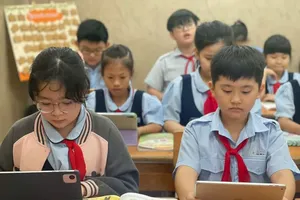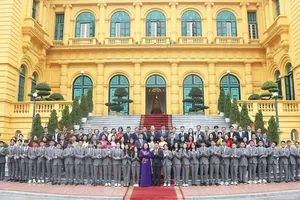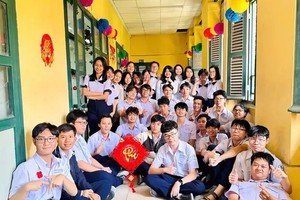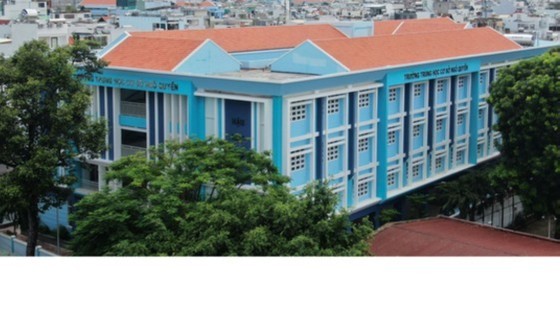 |
Ngo Quyen Secondary School in Tan Binh District is newly built and put into use in the 2023-2024 school year |
The Department of Education and Training of Ho Chi Minh City has just sent a report to the Ho Chi Minh City People's Committee on the implementation of the Government’s Resolution No. 35NQ-CP on strengthening the mobilization of social resources for investment in the development of education and training from 2019 to 2025.
Overall resources for education and training development have not yet been mobilized
According to the city’s Department of Education and Training’s report, the budget for education is considered a priority to increase each year, currently accounting for 28 percent of the city's regular spending budget and 20 percent of capital construction investment from the city’s state budget.
As of the 2022-2023 school year, out of 2,716 education and training establishments in the southern largest city, 1,467 are public facilities and 1,249 are non-public facilities and 35 foreign-invested schools including 19 multi-grade high schools, 2 elementary schools and 14 preschools.
Leaders of the Department of Education and Training of Ho Chi Minh City said that foreign-invested high schools play an important role in creating a good learning environment for children of foreigners and Vietnamese people abroad a long time arriving in Vietnam for working, contributing to the promotion of foreign investment in Vietnam and the development of the city.
According to statistics, 173 enterprises have poured investment into non-public education and training facilities in 2023.
In addition, for the development of preschool education in areas with export processing zones and industrial parks, the whole city has 4 non-public preschools and 24 preschools located adjacent and outside on the premises of export processing zones and industrial parks that have been built and put into operation to keep children of workers working in export processing zones, industrial parks and children of local households.
These facilities basically meet the childcare needs of workers in industrial parks and export processing zones.
Evaluating the work of mobilizing financial resources of domestic and foreign organizations and individuals to invest in education and training, the Department of Education and Training of Ho Chi Minh City said that the city is calling for investment in education and efforts to implement of localities, the education system from preschool to high school, continuing education, vocational education and non-public universities is currently achieving certain results which helps to increase the rate of children and students and universalization of education, meeting people's learning needs as well as reducing the burden on the state budget.
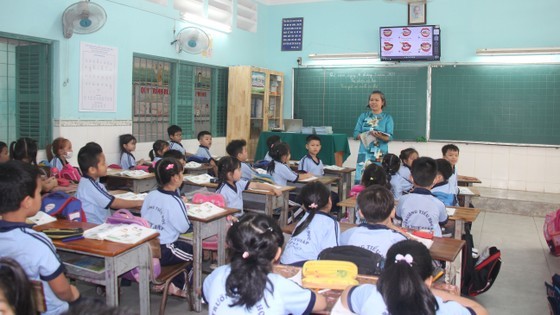 |
HCMC calls on investment in school construction projects |
However, the awareness of many officials and people is still low resulting in the slow speed of social contributions which are not commensurate with the potential and overall resources for development education and training.
Currently, the learning needs of city residents are very huge requiring many diverse types, but the activities of community learning centers are still limited.
Along with that, policies are not synchronized, specific instructions are lacking and slow, and the operating mechanism of public schools does not allow for the full promotion of the positive and creative abilities of facilities and teachers.
In particular, the school's autonomy mechanism in finance, tuition, and recruitment has not created great motivation for development. Although the number of non-public establishments is increasing rapidly, their scale is still small in general and their development of facilities is uneven. Investment procedures are still complicated and inadequate, causing difficulties in the process of investment mobilization, project introduction and specific negotiations.
Currently, people still do not trust the quality of non-public schools.
HCMC calls on investment in school construction projects
In the near future, Ho Chi Minh City planned to call on businesses’ investment in building 86 school projects in the form of public-private partnerships. Each project has an investment capital of over VND100 billion (US$ 4,118,982).
To remove difficulties and obstacles in mechanisms and policies to implement socialization in education and training, the Ho Chi Minh City People's Committee recommends that the Government consider removing and resolving land use-related issues for educational purposes.











